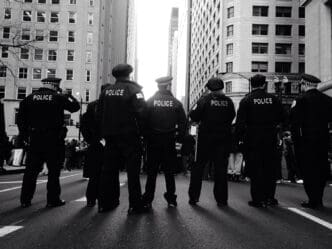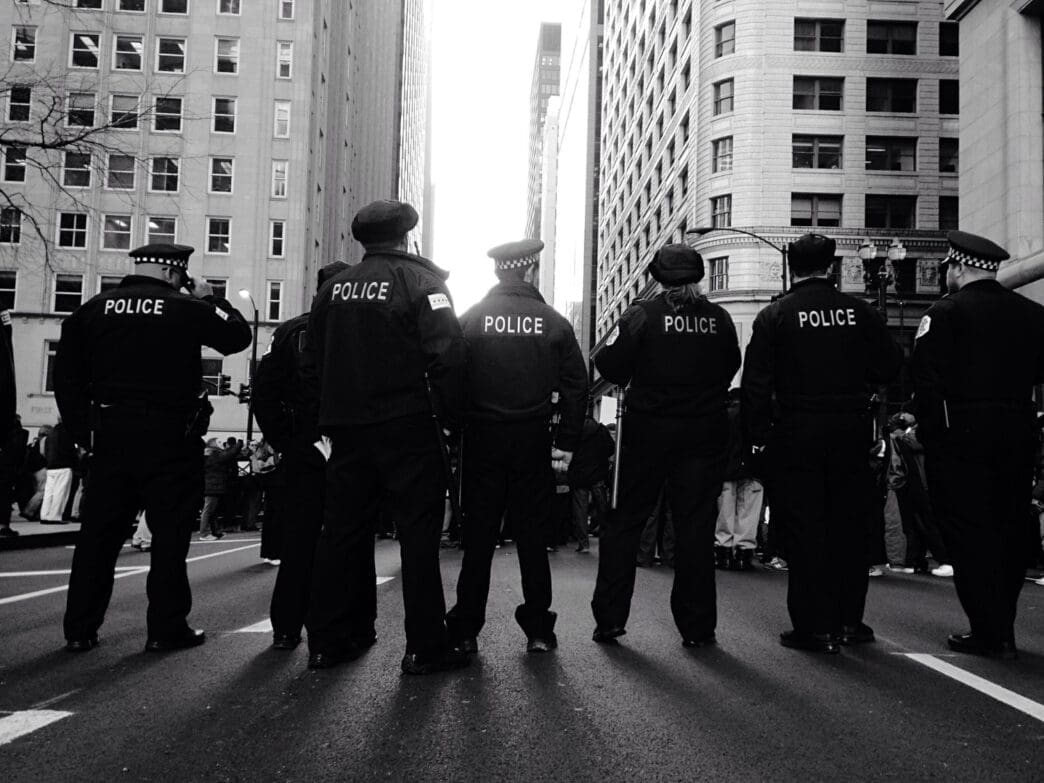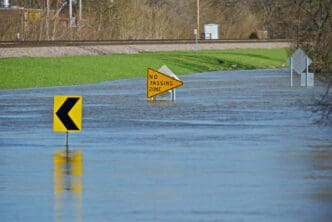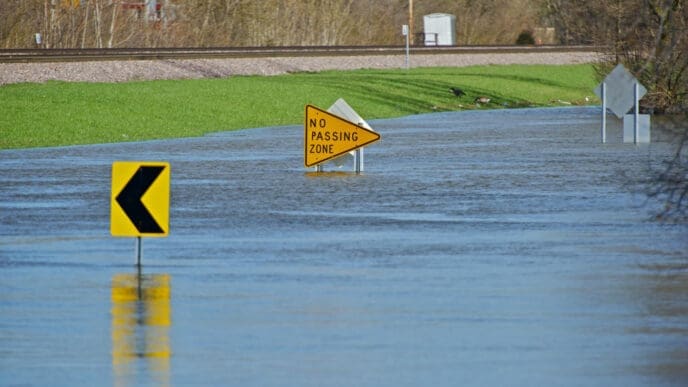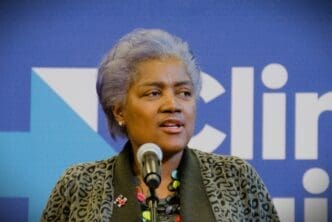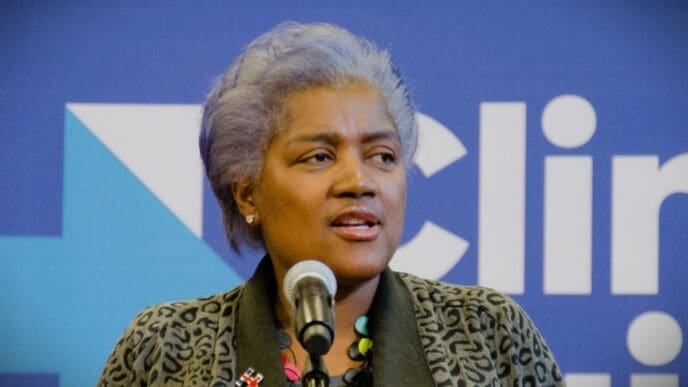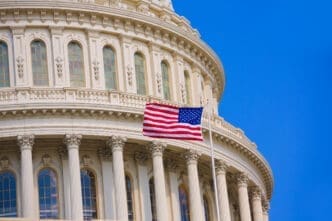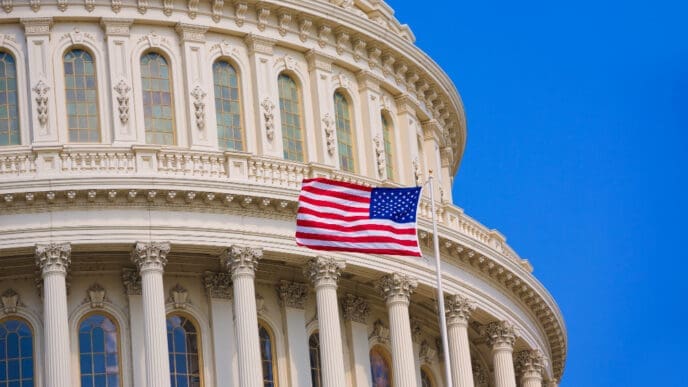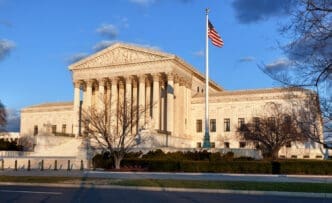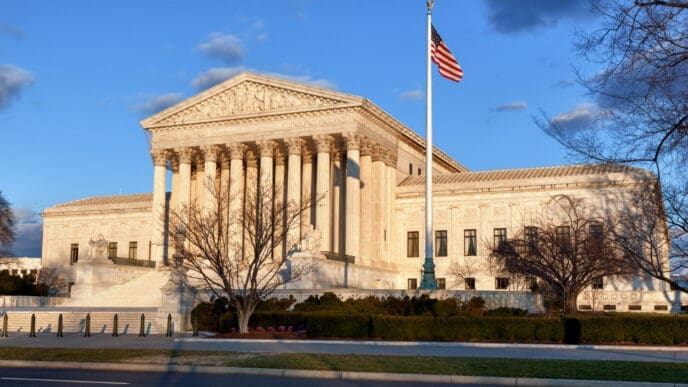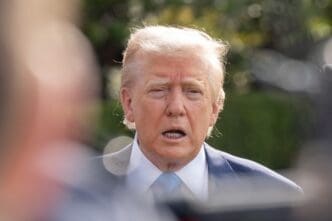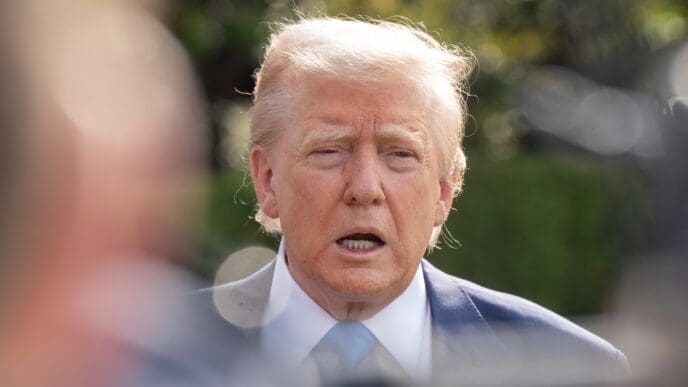Executive Summary
- President Trump plans to expand federal crime crackdowns into major Democratic-run cities, including Chicago and New York City, potentially deploying federal agents or National Guard troops.
- Democratic leaders and state officials vehemently oppose Trump’s proposed interventions, citing concerns over presidential overreach, state sovereignty, and the use of military forces for political ends.
- These federal interventions are poised to trigger significant legal and political confrontations over the limits of presidential power, state sovereignty, and could also escalate mass deportation efforts.
The Story So Far
- President Donald Trump’s stated ambition to expand federal crime crackdowns into major Democratic-run cities, including Chicago and New York City, is driven by his claims of rampant crime, a justification widely disputed by critics who view it as an attempt to expand presidential power, normalize military intervention for political ends, and potentially intensify immigration enforcement. This initiative is therefore poised to trigger significant legal and political confrontations over state sovereignty and the limits of executive authority, as Democratic leaders and state officials strongly oppose what they see as federal overreach.
Why This Matters
- President Trump’s ambition to expand federal crime crackdowns into Democratic-run cities like Chicago and New York City is poised to trigger significant legal and political battles over the limits of presidential power and state sovereignty, potentially leading to unprecedented federal interventions against local opposition. These actions could also serve as a pretext for intensifying mass deportation efforts in non-cooperating cities, while simultaneously diverting federal law enforcement resources and raising questions about the long-term effectiveness and financial sustainability of such deployments.
Who Thinks What?
- President Trump aims to expand federal crime crackdowns into major Democratic-run cities like Chicago and New York City, arguing that crime is “very bad” and out of control, and intends to deploy federal agents or National Guard troops.
- Democratic leaders, including Hakeem Jeffries and Governor JB Pritzker, strongly condemn Trump’s proposals, asserting there is no justification for deploying federal forces against local opposition, calling it a political maneuver to manufacture a crisis, and accusing him of operating like a dictator.
- Critics and experts, such as former Chicago Mayor Rahm Emanuel, suggest that Trump’s true purpose behind these interventions is to intensify immigration enforcement, and they question the legality, constitutionality, and financial sustainability of deploying federal troops into states against local will.
President Donald Trump’s stated ambition to expand federal crime crackdowns into major Democratic-run cities, including Chicago and New York City, is poised to trigger significant legal and political confrontations over the limits of presidential power and state sovereignty. This initiative, which could involve deploying federal agents or National Guard troops, has drawn sharp criticism from Democratic leaders who accuse Trump of manufacturing a crisis and attempting to normalize the use of military forces for political ends.
Proposed Federal Interventions
President Trump has identified Chicago as a primary target for his next crackdown, indicating that New York City would follow. He previously named Baltimore and Oakland, California, arguing that crime in these cities is “very bad.” CNN reported that the Trump administration has been planning for weeks to send the National Guard to Chicago, though details on troop numbers and deployment timelines remain unclear.
The president’s rhetoric, often claiming that crime is out of control, has been described by critics as misleading. His approach is seen by some as a tactic akin to “strongman leaders,” aiming to expand presidential authority and create political spectacles.
Democratic Opposition and Legal Warnings
Democratic leaders have swiftly condemned President Trump’s proposals. House Democratic Minority Leader Hakeem Jeffries warned against deploying troops to cities like Chicago against local opposition, stating there would be “no justification” for such a move. Jeffries suggested Trump was “playing games with the lives of the American people” to “manufacture a crisis” and create a distraction.
Illinois Governor JB Pritzker issued a statement asserting that his state had received no federal requests for assistance. He emphasized that “no emergency” warrants federalizing the Illinois National Guard, deploying National Guard troops from other states, or sending active-duty military within the state’s borders. Illinois Attorney General Kwame Raoul further criticized Trump, calling his actions “unprecedented” and accusing him of “operating as a dictator” by potentially turning the military against American citizens.
Maryland Governor Wes Moore, a potential Democratic presidential hopeful, suggested President Trump walk with him through Baltimore to observe local crime-fighting efforts. Trump, however, responded by calling Baltimore “out of control (and) crime ridden” and refused to visit until the “Crime Disaster” was resolved.
Constitutional and Political Implications
Critics argue that President Trump’s past deployments of National Guard forces in Washington, D.C., and Los Angeles in response to demonstrations were prototypes for broader national crackdowns. However, they note that the president has less legal authority to surge federal troops into states compared to a federal district like Washington, D.C.
Deploying federal troops or agents into a major city against the will of state and local officials would create a significant test of presidential powers and could threaten state sovereignty, a principle historically championed by Republicans. Declaring another national emergency to federalize state National Guard troops would likely trigger legal showdowns over the scope of executive authority.
The potential for a crackdown in a Democratic-led city also presents President Trump with an opportunity to escalate his mass deportation efforts. A CNN analysis of government data from Washington, D.C., indicated a tenfold increase in immigrant arrests during a period when the administration took control of the capital’s police force and deployed federal personnel.
Resource Concerns and Crime Statistics
The financial implications of prolonged federal deployments raise questions about sustainability, as National Guard operations are costly. Redeploying federal agents from other duties could also impact the ability of agencies like the FBI to address transnational crime or terrorism investigations, potentially hindering long-term crime reduction efforts.
President Trump’s warnings about “lawless inner cities” do not always align with current crime data. For instance, crime in Washington, D.C., reportedly fell in 2024 and has continued to decline this year. Chicago police reported a 31% decrease in homicides and a 36% drop in shootings this year. Despite these figures, many urban residents still express concerns about safety and would welcome increased police presence, though they often object to federally imposed solutions.
Expert Perspectives
Former Chicago Mayor Rahm Emanuel suggested that President Trump’s true purpose behind these interventions might be to intensify immigration enforcement in cities that do not cooperate with federal authorities on migrant crackdowns. Emanuel, a CNN commentator, stated that such actions “will not be about fighting crime,” but rather about “redoubling the effort on immigration enforcement.” He also noted Trump’s unique record of deploying troops only domestically during his two terms.
Jeffries reiterated that Democrats seek safer communities but advocate for solutions like cutting off the flow of illegal guns and addressing the mental health crisis, rather than federal power grabs. Raoul emphasized that federal entities like the FBI and DEA are trained to combat crime, unlike the National Guard.
The planned federal interventions underscore a deepening ideological divide over the role of the federal government in local law enforcement and the extent of presidential authority. As President Trump continues to signal a willingness to use federal resources to address perceived crime issues in Democratic-led cities, the stage is set for a series of legal and political battles that could redefine the balance of power between states and the federal executive.

